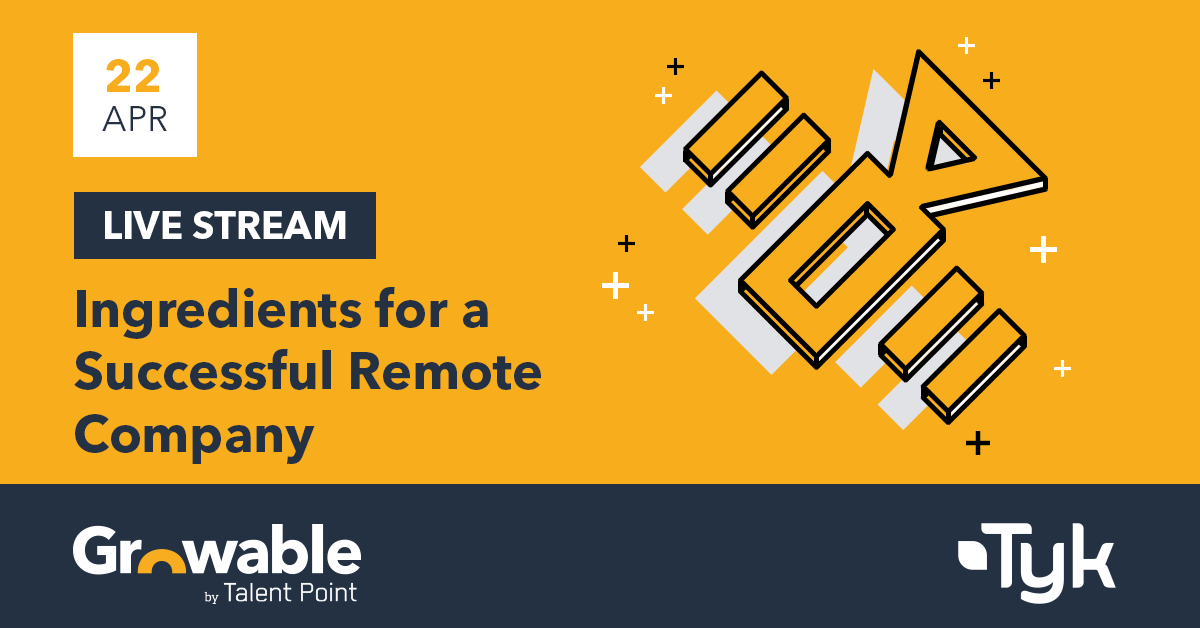In response to the COVID-19 pandemic, companies increased their adoption of remote working and collaboration a whopping 43 times faster than executives thought possible.
That’s a pretty astounding accelerated rate of change and we think everyone deserves a pat on the back.
At Talent Point, we support talent acquisition and people operations for a wide range of tech-driven businesses. Leaders within our customer base, new partners singing-up and beyond, have been asking for our support tackling important question…
What should our longer-term policy on, and approach to, remote working look like?
Here are some of the most important considerations to make when deciding what your approach to remote working will look like in the future.
- What kind of remote working is right for your business?
- Which roles are best suited to remote working?
- How will remote working impact your employee value proposition (EVP)?
- Your responsibility for employee wellbeing doesn’t disappear with an office
- The Legal implications of going fully remote
What kind of remote work is right for your business?
Adopting remote working isn’t a binary choice.
You can be fully-remote, remote-first or part-remote and it’s important that you take care considering which is the best option for your business and team before deciding either way.
If you’re just starting out, adopting a fully remote or remote-first approach will be challenging, but less so, as you can shape your business around it. The kind of people you hire and the internal processes for communication, and collaboration, can all be built from the ground to support it.
That doesn’t mean it’s easy or the answer to all your problems. Keep reading this article for an overview of some of the other factors to consider.
If you’re in an established business changing entrenched systems, processes, culture and ways of working to suit an entirely remote set-up, the challenge will be far bigger and your decisions more impactive.
Whilst COVID-19 has proven companies are adaptable when forced to change, for all the success stories of remote working there are companies and individuals who have struggled.
To make sure what you decide works best for your unique team, it’s vital to take stock of employee’s feelings towards remote working in conjunction with analysing the practicalities of going fully remote, part remote or remaining on-site.
Once you have a good sense this, you can start considering the other factors that influence how to approach remote working below.
Which roles are best suited for remote working?
We think it’s safe to say some roles are better suited to remote work than others.
For example, knowledge workers (e.g. software engineers) can really benefit from the opportunities for deep work when remote and customer support staff can often triage problems easily from home.
In contrast, ‘banging the phones’ as a sales exec is not very fun to do on your own in your makeshift home office. It can also be difficult to build meaningful relationships with potential customers remotely.
Given sales is a critical path for every business, can you do this remotely?
The question doesn’t just stop with someone’s job role though. Seniority, experience and general maturity, can play a big role in whether a person can work well remotely.
If you want to build a scalable and sustainable team, you’re going to need to hire juniors or graduates at some point, and supporting them effectively in a remote setting is not easy.
In a fireside chat with James Hirst, COO & Co-Founder of remote first team Tyk, he was open about their journey and how although they’d committed to remote from the get-go, they had to adapt to provide physical office space to better support certain teams and levels of experience.
Understanding the nature of work in your organisation and which roles can, or cannot, be successful remote should give you a good understanding how much remote is right for you.
Next let’s think about how this impacts your people beyond them physically being able to perform their day to day tasks.

How would remote working impact your Employee Value Proposition (EVP)?
Let’s assume everyone understands that an Employee Value Proposition (EVP) is about more than just a good salary and benefits package.
How then, as a fully remote company, would you provide the career development opportunities and culture that will attract – and importantly retain – new hires?
Your EVP should form the foundation of how you approach employer branding (to attract new hires) and employee experience (to support and retain existing staff). Both will be vastly different depending on if you’re a fully remote, remote-first, part remote or an entirely on-site business.
It is possible to provide a great (and executable) EVP as a fully-remote or remote-first company. It tends to suit tech-driven businesses more than others and there are plenty of well-known success stories such as Buffer, Basecamp and Gitlab - the latter of which is famously the largest fully remote team in the world.
That doesn’t mean it’s easy though. Attracting, supporting and retaining staff is hard enough even within the pre-defined norms of working in an office. Before you make a decision about your approach to remote work, think about how you will address these challenges to provide an enticing, and executable, EVP.
Your responsibility for employee wellbeing doesn’t disappear with an office
You have both a physical and mental responsibility for your employee's well-being.
Managing this in an office is much more straight forward. You’re responsible for the space staff work in and can make sure they have the hardware they need to perform their role safely and comfortably.
Simply being physically around people has a big benefit to mental health. It also makes it easier to notice, and thus support, someone who may be struggling.
Every remote employee will have a unique situation both in-terms of the space they have to work in and the support network they have, or don’t have, around them.
Do you, and if so how do you, understand every individual person’s situation? Can you create a solution that is flexible enough to cater for everyone’s needs? Do you factor this in when hiring new employees? If so, how?
Addressing physical well-being is easier. After all, and if someone has the space, it is relatively easy to provide them with a suitable chair, desk and raised screen.
With regards to their mental health though the challenge is very different.
How do you ensure people switch off from their work day to re-charge? Can you identify those that feel isolated or disconnected? How do you ensure individuals build strong relationships with their line managers, peers and other important contacts in your business?
These are some of the important questions that come with supporting remote employee mental health and should influence the route you ultimately take.
Legal implications of building remote teams
Last but by no means least, there are the legal obligations of adopting a remote-first position.
The most commonly touted benefit of going remote from a business perspective is the ability to hire anyone from anywhere in the world. Whist that sounds wonderful, there are a huge range of legal factors that influence where you ultimately decide to draw talent from:
- International employment law
- Payroll
- Health and safety
- Privacy and security
Most countries have their own laws related to everything on this list. If you want to directly hire people who are based in a specific country, you need to understand their domestic legislation or you risk breaking those laws. Yikes!
Unless you already have a global and/or a significant HR function supported by appropriate legal counsel, you’re probably not set-up to tackle hiring directly from multiple different countries.
That doesn’t mean you don’t do it. There are solutions to these challenges out there in the form of out-sourced-payroll and compliance for example, but they come with a cost and extra work that needs to be factored into your decision.
--
Remote work is here to stay and personally we think that’s a great thing. However, that does not mean every company should go all in. It is challenging to execute well and does not suit all types of business, or people.
Ultimately it’s a balancing act between these considerations and many more.
We’ve learnt a lot supporting customers tackling these questions over the last few months. In an upcoming eBook, we’ll be addressing these points (and more!) so subscribe to our mailing list below to receive your copy in the coming weeks.
In the meant time, if you’re looking for a talent partner who can support the growth and retention of your team regardless of situation, contact us us today.


